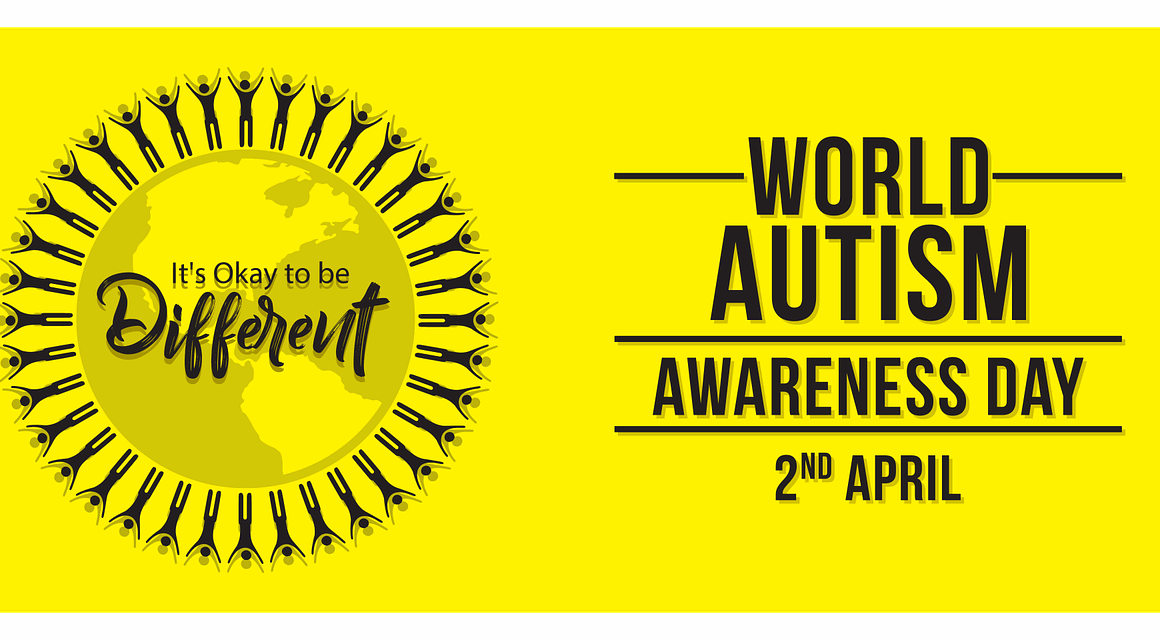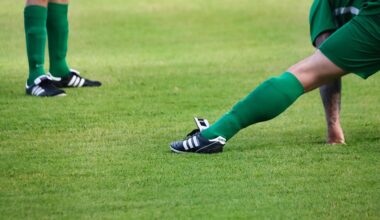Functional Adaptations to Physical Training in Special Needs Children
Physical training can yield significant functional adaptations in children with special needs, tailoring their exercise regimens to promote overall health and well-being. This population may experience various challenges that could limit their ability to engage in traditional physical activity. It becomes essential to adopt specialized approaches focusing on improving physical capacity, coordination, and muscle strength. Current research highlights that children with special needs, including those with autism, cerebral palsy, and Down syndrome, can adapt positively to physical training programs. These adaptations can manifest in enhanced motor skills and better functional fitness levels. One of the first steps is to assess individual capabilities accurately to design an effective intervention. Adapted exercise programs may utilize a range of activities, including swimming, cycling, or dance, which are particularly beneficial due to their engaging nature. Social skills, confidence, and emotional balance are also influenced positively through these experiences. Therefore, it is advised to measure progress meticulously to ensure that the adaptations are aimed at promoting a healthy lifestyle long-term for these children. By providing supportive environments, children can thrive physically and mentally through sustainable training interventions.
Effective exercise training leads to numerous physiological and psychological benefits for children with special needs. These benefits may include improved cardiovascular endurance, muscle strength, flexibility, coordination, and balance. Additionally, regular exercise serves as a potent tool for reducing anxiety and increasing self-esteem among these children. Training sessions should be carefully structured, ensuring they are engaging and tailored to individual needs. Moreover, incorporating recreational activities that promote social interaction can further enhance the overall exercise experience. Caregivers and professionals should emphasize the importance of creating a positive environment allowing children to participate in exercise at their own pace. Utilizing adaptive sports programs can provide children the opportunity to discover new interests. Parents and educators should also engage in shared activities, ensuring support and encouragement throughout the training process. Evidence suggests that peer involvement can increase motivation and adherence to exercise routines. To maximize both physical and mental outcomes, it is crucial to emphasize enjoyable components of exercise—fostering a sense of achievement. By recognizing individual achievements, children can experience empowerment. Ultimately, the focus should remain on long-term health benefits, promoting enjoyable active lifestyles that continue beyond the structured training periods.
Role of Professionals in Adapted Physical Training
Professionals specializing in exercise physiology play a vital role in designing effective programs for special needs children. Collaboration among physical therapists, occupational therapists, and adaptive physical education specialists ensures a comprehensive approach to each child’s unique requirements. Initial assessments conducted by these professionals provide insights into individual abilities, limitations, and aspirations. By utilizing various assessment tools and techniques, they can identify specific areas for improvement and create customized training plans. It is critical for these professionals to stay updated on the latest research surrounding adapted physical training methods to benefit special populations effectively. Building rapport between trainers and participants can substantially influence engagement levels in the program. This supportive relationship leads to better adherence rates and heightened success in reaching personal goals. Exercise professionals should address any barriers participants may face when beginning their physical training journey. Continuous motivation, encouragement, and positive reinforcement are effective strategies that can sustain children’s interest in exercise. Ultimately, the contribution of knowledgeable professionals can help foster an environment conducive to growth, ensuring children with special needs can reach their full potential through adapted training programs.
Another major factor contributing to successful exercise programs is the involvement of family and caregivers. Family members play a crucial role in supporting their children’s engagement in physical activity. Their encouragement can lead to more consistent participation and improved outcomes. Training programs should include education components designed for parents and caregivers, equipping them with knowledge regarding the benefits of physical activity. By fostering an understanding of individual needs, parents can help integrate exercise into daily routines, ultimately supporting their children’s adaptations. Moreover, when families participate in inclusive events or community-based activities, it creates a sense of belonging for children with special needs. Social connections formed during group activities can bolster motivation and improve the child’s self-concept. It fosters a collaborative atmosphere that invites family participation continuously, reinforcing positive behaviors. Furthermore, discussing experiences with other families can ease the isolation some may feel. Encouraging family involvement not only elevates the training experience but also enables children to thrive socially and emotionally. Establishing connections builds resilience, fostering long-lasting relationships that contribute to their overall well-being and development. Recognizing these support systems’ importance can enhance the effectiveness of tailored exercise programs significantly.
Measuring Progress and Effectiveness
Evaluating the progress of exercise programs targeting special needs children is essential to ensure continued improvement and adaptation. Effective assessment methods can provide valuable feedback on individual performance, identifying particular areas of achievement and those needing further attention. Standardized tests, skill assessments, and regular progress reports can aid trainers in fine-tuning programs tailored distinctly to each child’s trajectory. Progress can be quantified through various parameters, such as increase in physical endurance, strength, flexibility, and motor skill proficiency. Beyond physical attributes, improvements in social behavior and cognitive function should also be taken into account. This holistic approach ensures a comprehensive view of development. Moreover, adapting training protocols based on regular assessments allows for the formulation of novel challenges designed to keep participants motivated. Celebrating milestones and progress can significantly enhance engagement levels and reinforce positive experiences associated with physical training. Ultimately, maintaining a focus on measurable outcomes ensures training remains relevant, stimulating and enjoyable. Success provides motivation, encouraging children to continue pursuing physical activities beyond structured training programs. By reinforcing the commitment to measurable outcomes, trainers foster a growth mindset that promotes lifelong fitness habits among special populations.
In addition to physical adaptations, engagement in regular exercise yields significant benefits for mental health among special needs children. Exercise is well-documented to serve as a natural mood enhancer, providing stress relief and decreasing anxiety levels. When children participate in structured physical activity, they foster emotional regulation skills that are crucial for their overall development. The act of exercising helps in releasing endorphins, often referred to as ‘feel-good’ hormones, improving emotional well-being. Engaging in physical training opens up opportunities for social interactions that further bolster emotional health. Children gain experiences in teamwork, empathy, and communication skills through collaborative activities. As children advance their physical abilities, they may experience improved confidence and self-image, which positively influences mental health. Moreover, constructing a structured routine around exercise can offer stability and predictability in their lives, essential for many children with special needs. By integrating mental health benefits into physical training programs, professionals can emphasize the importance of a balanced approach to well-being. This recognition can lead to truly transformative experiences for children, underscoring the interconnectedness between mental and physical fitness. Creating an environment conducive to mental growth promotes comprehensive advancements in their overall quality of life.
Conclusions and Future Directions
Finally, promoting functional adaptations to physical training in special needs children highlights the importance of individualized programs tailored to each child’s unique requirements. Collaborative efforts among professionals, families, and community members create a supportive framework that enhances overall participation. It is crucial to recognize that these children possess immense potential for growth, regardless of their challenges. Continued research surrounding effective strategies and adaptations will ensure these programs evolve, meeting the dynamic needs of this population. As technology advances, integrating innovative tools targeting personalized exercise regimens becomes increasingly viable. Additionally, fostering inclusive environments through education and awareness can diminish societal stigmas surrounding special needs individuals. By creating openness, communities can encourage greater involvement in physical activities for children with special needs. Expanding access to resources will empower families to seek out the support necessary for sustained participation in exercise. Lastly, advocating for more inclusive community events will foster a mindset that celebrates diversity in physical fitness. Through these efforts, we can collectively embrace the belief that all children have the right to enjoy the benefits of a physically active lifestyle, leading to healthier future generations.
In summary, recognizing the positive adaptations associated with physical training in special needs children is critical in fostering their development. Through tailored exercise programs, children can experience improvements across multiple dimensions of their lives, including physical, emotional, and social growth. By ensuring collaboration among professionals, family members, and community participants, the framework for supportive and effective intervention is established. Assessment, evaluation, and progressive training strategies enhance engagement, ensuring that these children continue to thrive. Furthermore, addressing mental health alongside physical fitness promotes a holistic approach essential for long-term well-being. Communities that embrace inclusion naturally foster environments that encourage participation, ultimately breaking down barriers. Continued dedication to research and adaptation of training methods allows for advancements towards equitable opportunities for all children, empowering them to embrace active lifestyles. Importantly, each child’s journey is unique, deserving compassionate understanding and tailored support. By sharing success stories and reinforcing positive experiences, we cultivate resilience within these children and their families. As we move forward, we must remain committed to advocating for the rights of all children, ensuring access to fitness opportunities that promote growth and empowerment.


